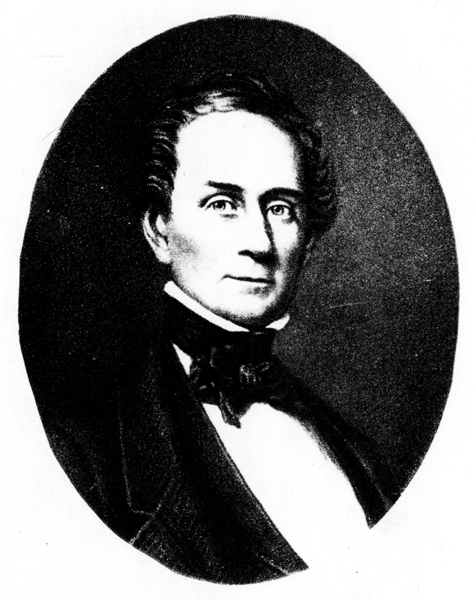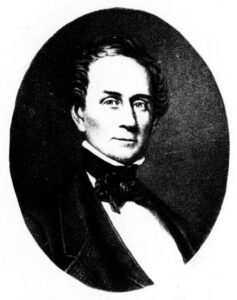Henry Johnson
Henry Johnson, the first professional politician elected governor of Louisiana, served from December 1824 until December 1828.

Courtesy of State Library of Louisiana
Governor of Louisiana Henry Johnson. Unknown
Henry Johnson, the first professional politician elected governor of Louisiana, served from December 1824 until December 1828. He governed during a period of increasing tension between the Creoles, who had lived in Louisiana for generations, and Anglo-American immigrants, who arrived in increasing numbers after the Louisiana Purchase. The most dramatic event during his term occurred in 1825, when the former Marquis de Lafayette (he had relinquished the title) visited Louisiana during his year-long tour of the United States. In April 1825, Johnson stood with Lafayette at the site where Andrew Jackson had organized his defensive lines during the Battle of New Orleans in 1815.
Henry S. Johnson was born in Virginia on September 14, 1783. Although his formal education was limited, Johnson studied law and was admitted to the bar. He moved to the Territory of Orleans in 1809, where Governor William C.C. Claiborne appointed him clerk of the Second Superior Court. He served in that capacity until 1811.
Johnson was a delegate to the first Louisiana Constitutional Convention in 1812. Though he lost an election to serve in the U.S. Senate later that year, the state legislature elected him to fill a senate seat made vacant by Claiborne’s death. Johnson was re-elected and served a second term from 1818 until 1824, when he resigned to run for governor.
Johnson won the gubernatorial election in 1824, benefiting from a split among Creole voters. His administration created two financial institutions to promote prosperity and stability: the Louisiana State Bank and the Consolidated Association of Planters of Louisiana. Johnson also improved commerce within Louisiana by forming the Internal Improvement Board to maintain and build roads and canals. The conflict between the Creoles and Anglo-American immigrants reached a crescendo during Johnson’s term. Anglo-American leaders wanted to move the capital out of New Orleans, while the Creoles wanted to retain the seat of government in a predominantly French part of the state. In a compromise, the legislature agreed to move the capitol to Donaldsonville. Lafayette’s visit helped allay the bitter Creole-Anglo split, but Johnson then inflamed the conflict once again by siding with the “Anglos” in a dispute about cotton and sugar cultivation.
In a series of runs for elected office after his gubernatorial term ended, Johnson lost the U. S. Senate race in 1829, but served in the U. S. House from 1835 to 1839. He ran again for governor in 1842, but was defeated by Alexandre Mouton. From 1844 to 1848, he served in the U. S. Senate in a seat made vacant by the death of Alexander Porter.
During his Senate term, Johnson strongly supported the annexation of Texas and a rigorous naturalization law, and opposed the Walker Tariff of 1846. He was defeated in a run for the U. S. House of Representatives in 1850, and then retired to his plantation in Pointe Coupée Parish, near Livonia. Johnson died and was interred there on September 4, 1864.
Sources: Meynier’s Louisiana Biographies; Henry E. Chambers, A History of Louisiana (1925); Alcée Fortier, History of Louisiana (1904); Louisiana Courier, July 2, 1842; New Orleans Bee, July 4, 1842.
This entry was adapted from Marius Carrier’s entry for the Dictionary of Louisiana Biography, a publication of the Louisiana Historical Association in cooperation with the Center for Louisiana Studies at the University of Louisiana, Lafayette. http://www.lahistory.org
